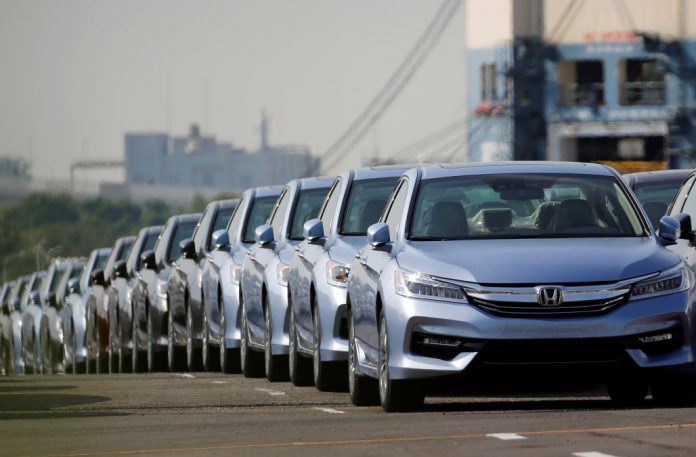While the government has decided to conduct a forensic audit of the historic jump in car prices in the country, industry sources claim prices have surged by around 50 per cent because of the rise in input cost during the past two years.
An auto industry representative attributed the historic jump in prices to increasing input costs owing to exponential hike in freight charges, rupee devaluation and rise in petroleum and steel prices.
Apart from the frequent increases made by the local car manufacturers/assemblers, numerous automakers have recently announced significant price increases on vehicles.
The price of local cars had slightly come down last year following the government’s decision to slash taxes and duties. However the prices again went up by over 35 per cent for the currency devaluation and freight charges.
Recently, an Original Equipment Manufacturer (OEM) announced a price increase of Rs200,000 to Rs1.2 million on their vehicles while another Japanese car manufacturer announced a price hike of Rs250,000 to Rs400,000. Almost all the other car makers geared up to follow suit.
In March, car assemblers increased car prices for the third time post annual budget. The first round of major price hike came in November 2021, the second one came in January when the government reversed the tax benefits given in the FY 2022 budget, and the last price hike came in March, again on account of cost pressures.
“The freight rates have gone up over 250% in a year. These increased rates are feeding the inflation beast in almost all sectors and auto is no exception. There has been a global hike in automobile prices, specifically since the pandemic started,” said Syed Zafar Ali, an automotive expert.
“In Pakistan the situation is grave as these factors are complemented by rupee dollar disparity and increased duties and taxes on the sector,” he reasoned.
“The manufacturers would definitely pass on the increase in the cost of production and high cost of raw material to the customer. We have witnessed an increase of almost 50% in car prices in Pakistan in the last 2 years,” he said.
To add to the cost of production in various sectors including the auto industry, steel prices have also gone up by 28% since the start of this month. Due to this local steel manufacturers have cumulatively increased prices by 55% in the last 12 months to maintain margins.
Following the frequent jump in car prices in the country and complaints registered by the customers, the Ministry of Industries last month has decided to probe the matter through conducting a forensic audit of the issue by hiring services of private firms.
Interestingly, despite the historic hike in prices of locally assembled/manufactured cars, their sales still continued rising in the country. As per a data shared by Pakistan Automotive Manufacturers Association (PAMA), car sales in March went up by 25 percent as compared to February while the industry showed growth of 30 percent when compared to sales it recorded in March 2021.
The industry sold 27,131 units in March compared to 21,664 sold in February. The industry sold 20,813 units in March last year. Auto industry sold a total of 205,381 cars in the first nine month of fiscal year 2022 – recording a strong growth of 52 percent as compared to the corresponding period last year, when the industry sales were 134,718 units.
According to a Sherman Securities report, keeping in view a hike in interest rate, the car leasing may eventually be reduced by the demand in the market.
However, the report added the auto sector has shown resilience in the past and sales may not go down as indicators attached to the sector suggest.




